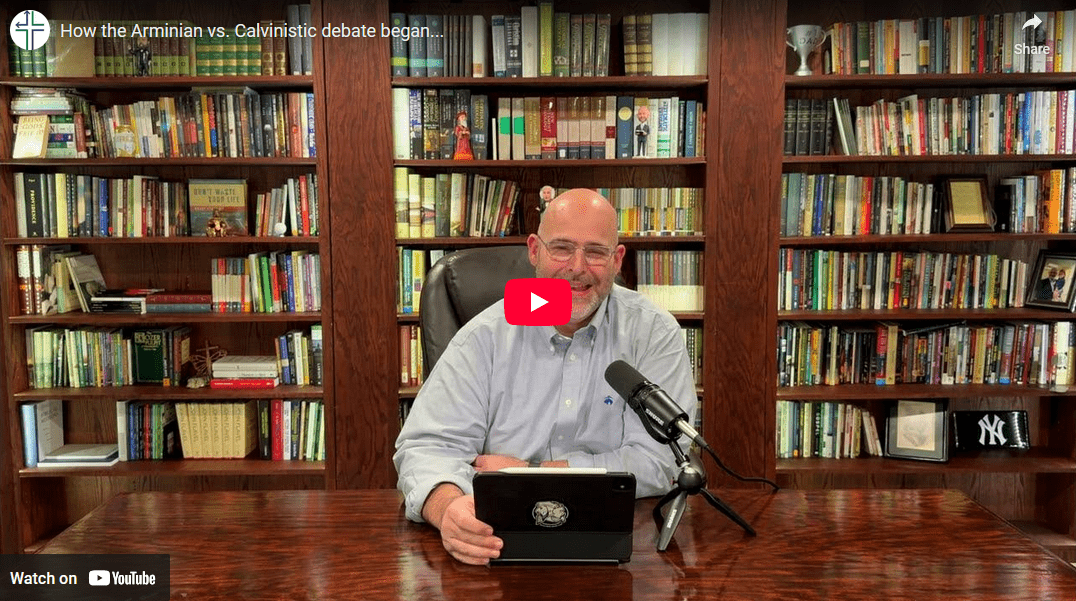Auto generated transcript:
Hello and welcome to another Five Good Minutes, where I answer your theological questions in five minutes or less. Today we’re going to tackle a big question: What is the history of the Arminian and Calvinistic debate? This is a question that has divided churches and Christians for a long, long time. However, it’s important to dig deep into church history to know where we’ve been, where we are, and where we’re going. This debate is still a common debate among churches and Christians today, and it’s important to understand where you fall.
From the beginning, let me say—as many of you already know—I am a Reformed Baptist, and yes, I adhere to Calvinistic soteriology, also known as the doctrines of grace: the five points of Calvinism. So how did this all begin? This debate among predestination and election is one that is so controversial and driven by much emotion. This all started, of course, with the teachings of John Calvin, the French and Swiss reformer on the heels of the beginnings of the Protestant Reformation.
Calvin began to teach more systematically about the doctrines of grace, and eventually this was formalized in what we call the five points of Calvinism, or the TULIP acronym: Total depravity, Unconditional election, Limited atonement, Irresistible grace, and Perseverance of the saints. In response to this, Jacobus Arminius, a Dutch theologian, began to challenge these ideas, and eventually his followers—the Remonstrants—laid out five points of disagreement. This launched a major debate and led to the Synod of Dort in the early 1600s, where the Calvinistic position was upheld and the Arminian position rejected.
Still, Arminianism has had a strong influence in church life, particularly in the Methodist tradition and other more free-will-oriented denominations. Understanding both perspectives helps us think carefully and biblically about salvation, God’s sovereignty, and human responsibility. The important thing is to dig into Scripture, be gracious with one another, and understand that faithful Christians may differ on this issue.

